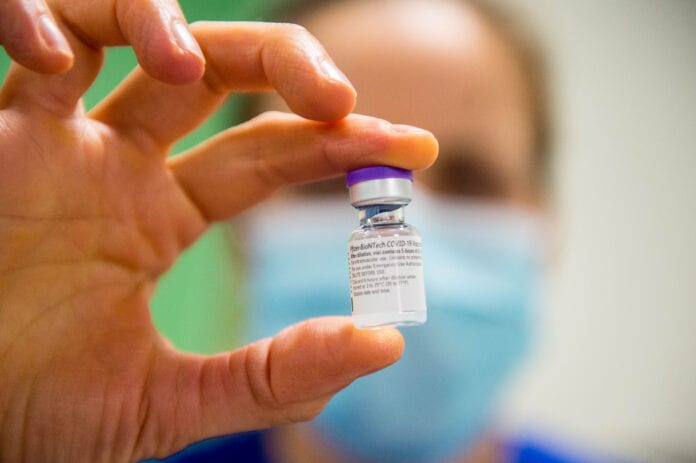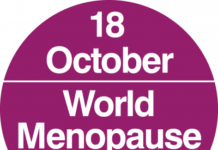Early findings helped to change Welsh vaccination policy to prioritise vulnerable patients during second wave
A new study published today has highlighted a “30-day window” for hospital inpatients to be vaccinated against COVID-19 to help reduce their risk of dying.
A Cardiff University-led team analysed 2,508 hospital patients across 18 sites during the first wave of the pandemic to assess the impact of being infected with COVID-19 in hospital on risk of death.
They found the risk of dying from COVID-19 was far greater for patients who catch it while already in hospital than it is for those who get the virus in the community, reflecting the vulnerable nature of these individuals.
The findings highlight a month-long window for vaccination between admission to hospital and SARS-CoV-2 infection. The study, the largest of its kind to date, is published today in the BMJ journal Thorax.
The early findings were shared with the Welsh Government in January of this year – and helped contribute to a change in vaccination policy in Wales to prioritise some of the most vulnerable patients during the second wave. Prior to this it was not policy to vaccinate COVID-19 negative inpatients.
Dr Mark Ponsford, a clinician scientist from Cardiff University’s School of Medicine and lead author on the paper, said: “During the first wave of the pandemic I was first struck by the high rate of death among individuals who likely caught COVID-19 during their time in hospital, and secondly by how closely this group resembled care and nursing home residents.
“We also found that more than half of patients had been admitted for at least 30 days before they caught COVID-19, highlighting a window for vaccination or other infection control measures that we felt could help to reduce this risk.”
Study co-author Professor Stephen Jolles, a consultant immunologist and lead for the Immunodeficiency Centre for Wales, presented the early research findings to the Welsh Government in the Technical Advisory Group (TAG) and Vaccination Clinical Advisory and Prioritisation group (COVID-VCAP) in January and February 2021. This formed part of the evidence used in formulating government policy on enhanced vaccination of inpatients.
The analysis, carried out by specialists in respiratory medicine, immunology and public health from across Wales, also lays bare the high rate of mortality from hospital-acquired COVID-19.
It suggests the risk of death in hospital-acquired COVID-19 is greater than previously suggested in the other published studies.
Professor Ian Humphreys, who leads infection research at Cardiff University’s Systems Immunity University Research Institute, said: “It is increasingly clear that in-hospital transmission of COVID-19 can be an important contributor to adverse outcomes. It also highlights how important it is to understand how effective vaccination is within the more vulnerable patient groups. We are now addressing this question.”
Senior author Dr Simon Barry, a consultant respiratory physician from Cardiff and Vale University Health Board, said: “We need to remember that those who are admitted to hospitals are at their most vulnerable and continue to look at ways to help reduce the risk of hospital-acquired infection in general.”
The research included patients from Aneurin Bevan University Health Board, Betsi Cadwalladr Health Board, Cardiff and Vale Health Board, Cwm Taf Morgannwg Health Board, Hywel Dda Health Board and Swansea Bay Health Board. It was funded by the Welsh Government, UKRI/NIHR through the UK Coronavirus Immunology Consortium, Cardiff University and the Association of Clinical Pathologists.
The researchers said further work was needed to explore if there were patient groups who might be particularly vulnerable to hospital-acquired COVID-19, and to understand how effective vaccination proves to be in breaking the link between infection and death in this hospital-acquired setting.
Rhys Jefferies, from the Respiratory Health Implementation Group and Swansea University, who coordinated data collection, said: “This really shows the value of a national approach in Wales, enabling us to rapidly collect data from across the country to understand and help address this problem. We continue to respond quickly by supporting the NHS and government during the COVID-19 pandemic.”
Help keep news FREE for our readers
Supporting your local community newspaper/online news outlet is crucial now more than ever. If you believe in independent journalism, then consider making a valuable contribution by making a one-time or monthly donation. We operate in rural areas where providing unbiased news can be challenging. Read More About Supporting The West Wales Chronicle





















